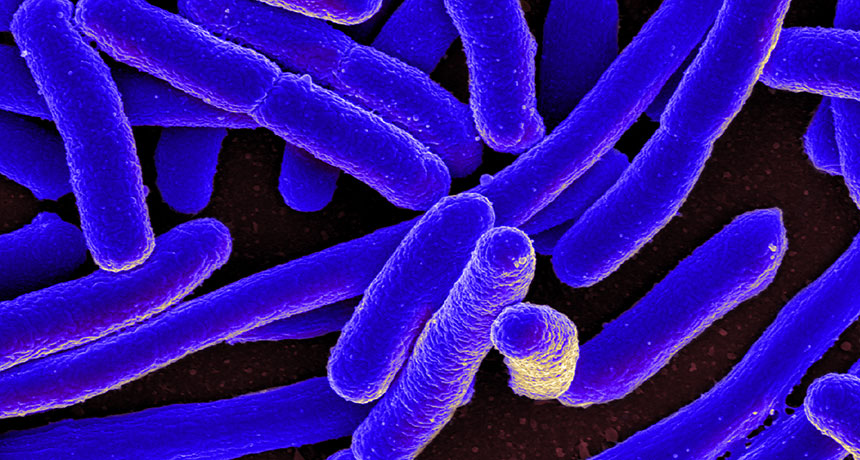
PINCH HITTERS When E. coli (shown here) loses genes that make important enzymes, other enzymes will find a new way to do the same job.
NIAID/Flickr (CC BY 2.0)

PINCH HITTERS When E. coli (shown here) loses genes that make important enzymes, other enzymes will find a new way to do the same job.
NIAID/Flickr (CC BY 2.0)